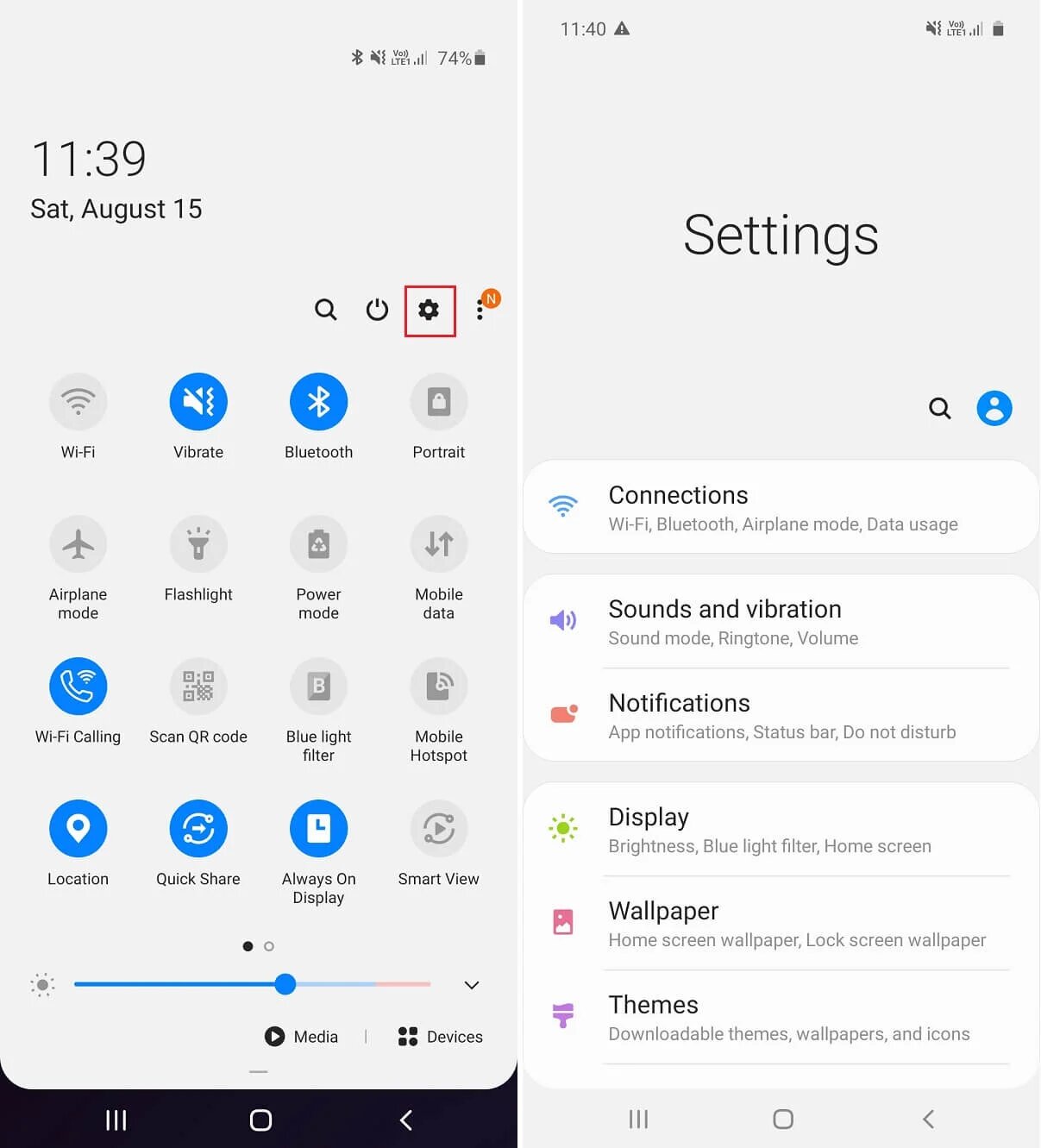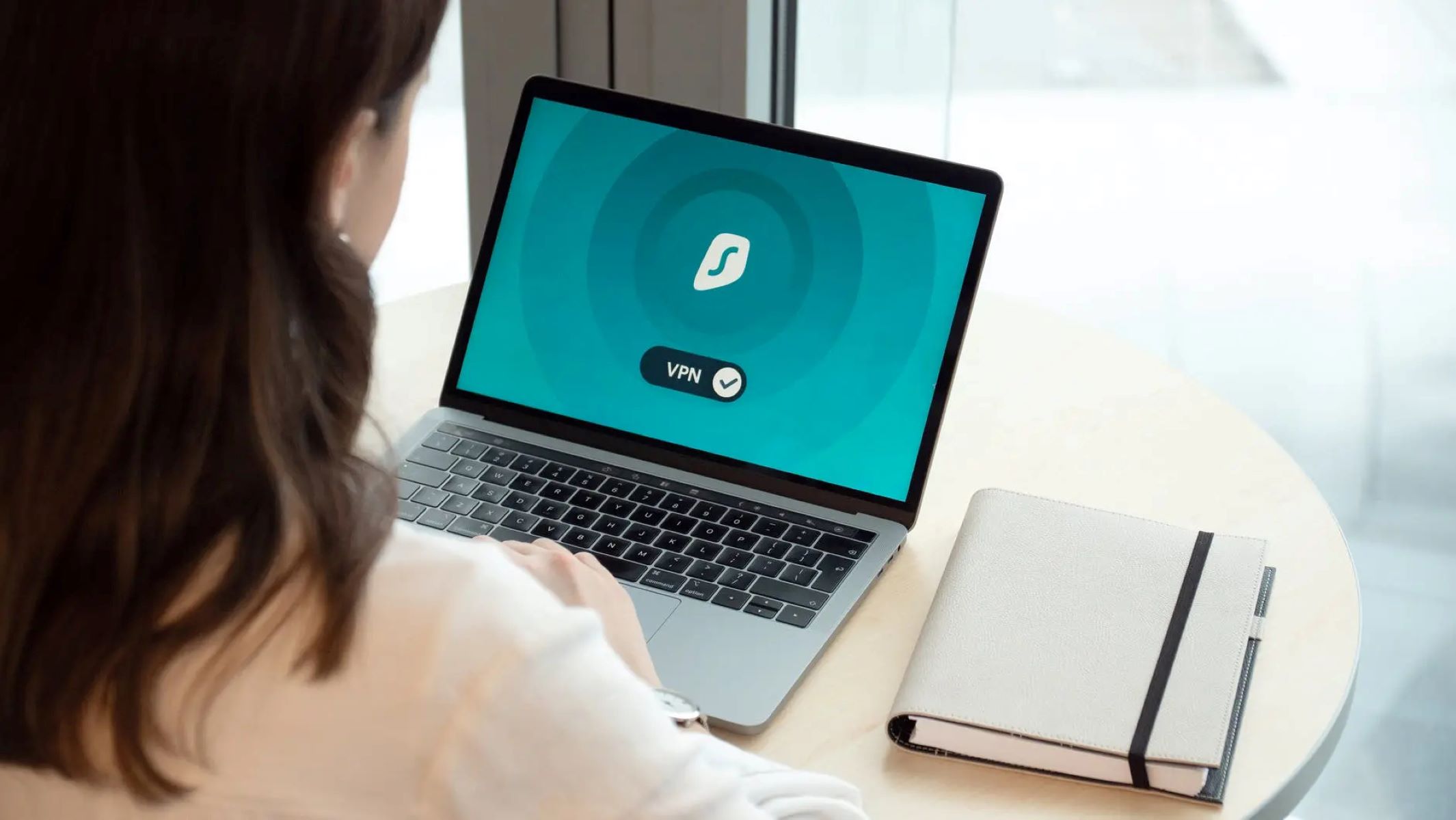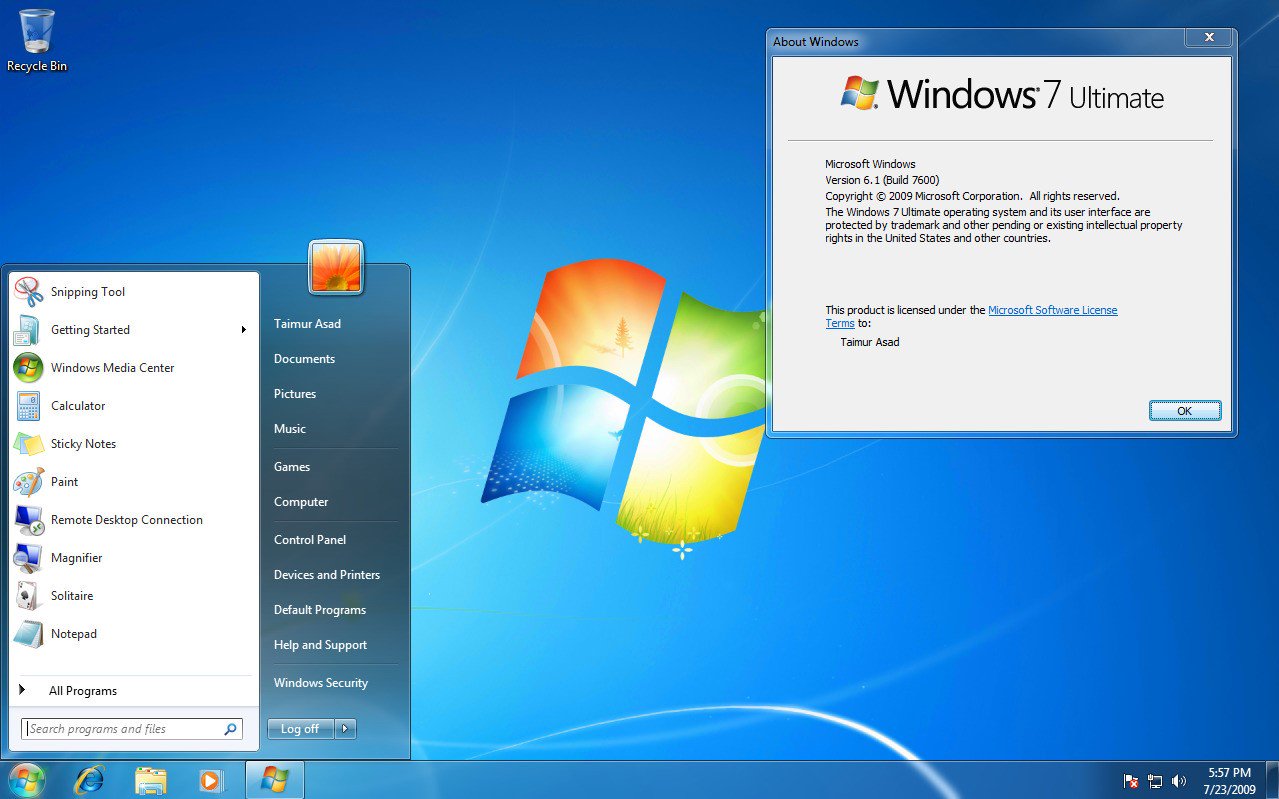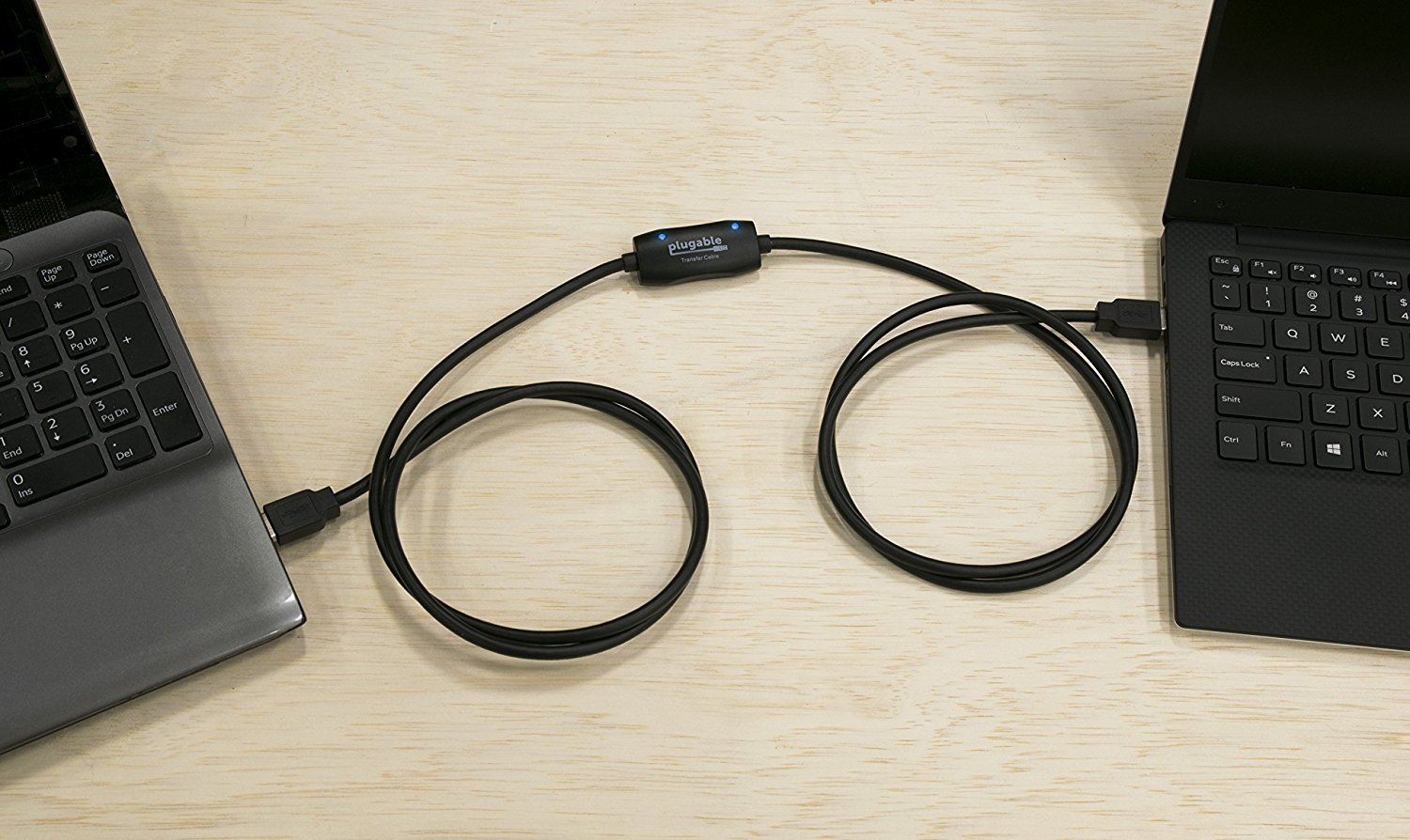Introduction
A proxy server is a crucial tool in the modern digital landscape, allowing users to enhance their online experience and maintain their privacy. Whether you’re a casual internet user, an avid streamer, or a business owner, understanding what a proxy server is and how it works can greatly benefit you.
In a world characterized by increasing online threats and restrictions, utilizing a proxy server can help safeguard your identity and data while providing several other advantages. By redirecting your internet traffic through a proxy server, you can mask your IP address, access restricted content, and even improve your browsing speed.
This article aims to provide a comprehensive overview of proxy servers, covering their definition, functionality, different types, benefits, limitations, and practical use cases. By the end, you’ll have a solid understanding of what using a proxy server means and how it can significantly impact your online activities.
So, let’s dive into the world of proxy servers and discover the power they hold in shaping our online experiences.
What is a Proxy Server?
A proxy server serves as an intermediary between the user and the internet. It acts as a gateway, forwarding requests from the user to the destination website and returning the response back to the user. Essentially, the proxy server stands between the user’s device and the internet, making it a crucial component in routing internet traffic.
One of the primary functions of a proxy server is to mask the user’s IP address. When you connect to the internet through a proxy server, the server assigns its IP address to your device. This allows you to browse websites anonymously, as your real IP address remains hidden. It’s like wearing a disguise while roaming the internet.
Additionally, a proxy server can offer access to restricted content. If you’re trying to access a website that is inaccessible in your country due to geo-restrictions or censorship, a proxy server can help. By connecting to a proxy server in a different location where the content is available, you can bypass these restrictions and access the desired content.
Furthermore, proxy servers can improve your browsing speed and performance. When you connect to a website through a proxy server, it can cache certain elements of the website, such as images or scripts. The next time you visit the same website, the proxy server can serve these cached elements quickly, resulting in faster load times. This can be particularly beneficial in busy networks or areas with limited internet connectivity.
Proxy servers can also provide an additional layer of security. While they are not a substitute for proper security measures such as antivirus software and firewalls, proxy servers can help protect against certain types of attacks. For example, they can filter out malicious websites or prevent direct connections between the user’s device and potentially harmful servers.
In essence, a proxy server acts as a middleman, offering anonymity, access to restricted content, improved performance, and added security. By understanding how a proxy server functions, you can leverage its benefits to enhance your online experience.
How Does a Proxy Server Work?
To understand how a proxy server works, let’s break it down into a step-by-step process:
- User initiates a request: When you connect to the internet and request to access a website, your web browser sends a request to the proxy server instead of directly connecting to the destination website.
- Proxy server receives the request: The proxy server acts as a middleman, receiving the request from your device. It then evaluates the request and decides how to handle it.
- Proxies and caching: If the proxy server has a cached copy of the requested content, it can serve it directly to your device without having to forward the request to the destination website. This caching feature can significantly improve the browsing speed for frequently accessed websites.
- Proxy server forwards the request: If the proxy server doesn’t have a cached copy or the user requests new content, it acts on behalf of the user and forwards the request to the destination website.
- Destination website responds: The destination website receives the request from the proxy server and sends a response back.
- Proxy server receives the response: The proxy server acts as a mediator, receiving the response from the destination website. It inspects the response, performs any necessary modifications, and prepares to send it back to the user.
- Proxy server sends the response: Finally, the proxy server sends the response back to the user’s device, completing the communication loop. The user’s device receives the response as if it had directly connected to the destination website.
By incorporating these steps, a proxy server can efficiently manage and control internet traffic, providing various benefits to the user.
It’s worth noting that proxy servers can be configured to serve different purposes. For example, some proxy servers focus on providing anonymity by hiding the user’s IP address, while others prioritize caching and performance optimization. Additionally, proxy servers can be set up at different levels in a network, from individual devices to local networks and even at the ISP level.
Understanding how a proxy server works enables users to make informed decisions about their online activities. Whether it’s for enhanced privacy, bypassing restrictions, or optimizing performance, proxy servers offer flexible solutions to meet a variety of user needs.
Types of Proxy Servers
Proxy servers come in different types, each with its own features and purposes. Understanding the various types of proxy servers can help you choose the most suitable option for your specific needs. Here are the main types:
- HTTP Proxy: Also known as an HTTP web proxy, this type of proxy server is primarily designed to handle HTTP requests. It acts as an intermediary between the user and the web server, forwarding HTTP requests and responses. HTTP proxies are commonly used for web browsing and can provide caching and content filtering capabilities.
- HTTPS Proxy: Similar to an HTTP proxy, an HTTPS proxy is specifically designed for handling HTTPS (Secure HTTP) requests. It encrypts the requests and responses, ensuring a secure connection between the user and the web server. HTTPS proxies are crucial for secure online transactions and protecting sensitive information.
- SOCKS Proxy: SOCKS (Secure Sockets) proxies operate at a lower level than HTTP proxies, providing a more versatile solution. They can handle various types of traffic, including web browsing and other protocols like FTP, SMTP, and UDP. SOCKS proxies are commonly used for activities that require network flexibility, such as online gaming or torrenting.
- Transparent Proxy: Transparent proxies, also known as inline proxies, intercept and forward the user’s requests without modifying them. They are often used by network administrators to monitor or control traffic within a network. Transparent proxies act behind the scenes and may not require any manual configuration on the user’s device.
- Reverse Proxy: While most proxy servers forward requests from the user to the destination server, a reverse proxy works the other way around. It sits between the web server and the user, receiving requests on behalf of the server. Reverse proxies are commonly used to distribute traffic, improve performance, and provide additional security measures for the backend servers.
- Residential Proxy: Residential proxies acquire IP addresses from residential internet service providers (ISPs). They give users the ability to browse the internet with an IP address associated with a specific location, providing enhanced anonymity and the ability to access location-restricted content.
- Datacenter Proxy: Datacenter proxies are not associated with any specific internet service provider. Instead, they are created in data centers, often used by businesses for various purposes, such as web scraping, search engine optimization (SEO), or accessing geo-restricted content.
These are just some of the many types of proxy servers available. Each type offers unique features and advantages, catering to different needs and use cases. It’s important to understand the differences between them to select the most suitable proxy server for your specific requirements.
Benefits of Using a Proxy Server
Using a proxy server can bring a range of benefits to your online activities. Here are some key advantages:
- Anonymity and Privacy: One of the significant benefits of proxy servers is their ability to provide anonymity and protect your privacy. By masking your IP address, proxy servers prevent websites and other online entities from tracking your online activities, ensuring that your identity remains hidden.
- Access to Restricted Content: Proxy servers can help you bypass restrictions imposed by websites or regional limitations. By connecting to a proxy server in a different location, you can access geo-restricted content, such as streaming services or websites blocked in your country.
- Faster Browsing Speed: Proxy servers with caching capabilities can significantly improve your browsing speed. By storing frequently accessed web elements, such as images or scripts, proxy servers can serve them quickly, reducing the load time of web pages and enhancing your overall browsing experience.
- Improved Security: Proxy servers act as intermediaries between your device and the internet, offering an extra layer of security. They can filter out malicious websites and prevent direct connections to potentially harmful servers, reducing the risk of encountering malware or other online threats.
- Bandwidth Control: In network environments where multiple users share the same internet connection, proxy servers can help distribute bandwidth fairly. By controlling and managing the flow of internet traffic, proxy servers optimize the utilization of available bandwidth, ensuring smooth and efficient browsing for all users.
- Network Performance Optimization: Proxy servers can enhance the performance of networks by caching content, compressing data, and minimizing data transfer. This can result in faster load times for websites, reduced bandwidth usage, and improved overall network efficiency.
- Data Encryption: Some proxy servers, particularly HTTPS proxies, offer encryption capabilities. This enables secure communication between your device and the destination server, ensuring that your sensitive information remains protected from eavesdroppers or potential data breaches.
These benefits make proxy servers a powerful tool for individuals and businesses alike. Whether you’re concerned about your privacy, accessing restricted content, or optimizing your online experience, utilizing a proxy server can provide the solutions you need.
Common Use Cases for Proxy Servers
Proxy servers find application in various scenarios and serve different purposes based on user needs. Here are some common use cases where proxy servers are widely used:
- Anonymous Browsing: Proxy servers are frequently used to browse the internet anonymously. By masking your IP address, proxy servers provide an additional layer of privacy and prevent websites from tracing your online activities. This is particularly useful for individuals who value their privacy or wish to bypass censorship or surveillance.
- Accessing Geo-Restricted Content: Many websites and streaming platforms restrict their content to specific regions. In such cases, proxy servers with locations in the desired region can be used to bypass these restrictions and access the content. By connecting through a proxy server in a different country, users can virtually appear as if they are browsing from that location.
- Web Scraping: Proxy servers play a crucial role in web scraping, a technique used to extract data from websites. By rotating through different IP addresses via proxy servers, web scrapers can avoid rate limiting and IP blocks, ensuring uninterrupted data collection.
- SEO Monitoring and Research: For search engine optimization (SEO) purposes, proxy servers are utilized to monitor search engine rankings, track competitors, and gather data for keyword research. Proxy servers allow users to simulate searches from different locations and collect accurate search engine result page (SERP) data.
- Load Balancing: Reverse proxy servers are commonly used for load balancing. By distributing incoming traffic across multiple backend servers, reverse proxies can optimize resource usage, improve reliability, and ensure high availability for web applications.
- Content Filtering: Proxy servers with filtering capabilities are deployed in various environments, such as schools, workplaces, and public networks, to restrict access to certain websites or content categories. These proxies can help enforce internet usage policies and prevent users from accessing inappropriate or malicious content.
- Security and Firewall Protection: Proxy servers act as a protective barrier between internal networks and the internet. They can filter incoming and outgoing traffic, blocking potentially harmful content or malware from reaching the internal network. Proxy servers also allow for more granular control over network traffic, helping to prevent unauthorized access or data breaches.
- Caching and Content Delivery: Proxy servers with caching capabilities store frequently accessed web content, such as images, scripts, or videos. By serving cached content, proxy servers can reduce bandwidth usage, minimize server load, and improve website performance for users accessing the same content repeatedly.
These are just a few examples of the many use cases for proxy servers. The versatility and flexibility of proxy servers make them indispensable tools in a wide range of applications, providing solutions for privacy, access, security, and performance.
Risks and Limitations of Proxy Servers
While proxy servers offer numerous benefits, it is important to be aware of their potential risks and limitations. Here are some of the key considerations:
- Security Risks: While proxy servers can enhance security to some extent, they are not foolproof. If a proxy server is compromised or operated by malicious entities, it can potentially intercept and manipulate your internet traffic, leading to data breaches or unauthorized access. It is crucial to choose reputable and trusted proxy servers to minimize these risks.
- Privacy Concerns: While proxy servers can provide anonymity by masking your IP address, it is essential to remember that the proxy server itself can potentially log your online activities. Some free or lesser-known proxy servers may collect and sell your data, compromising your privacy. Opting for paid or reputable proxy services with strong privacy policies can mitigate these concerns.
- Performance Limitations: While proxy servers with caching capabilities can improve website performance, they may not always provide a noticeable speed boost. In some cases, the overhead of routing through a proxy server can introduce additional latency, slowing down your browsing experience. Additionally, poorly maintained or overloaded proxy servers may result in slower speeds or intermittent connectivity.
- Compatibility Issues: Certain websites or applications may not work well with proxy servers. Some websites may block access from known proxy server IP addresses, while others may limit functionality or display incorrect information when accessed through a proxy server. Compatibility issues can vary depending on the type of proxy server used and the specific website or application in question.
- Legal and Ethical Considerations: It is important to use proxy servers in compliance with applicable laws and regulations. Some activities, such as circumventing copyright restrictions or engaging in illegal activities, can be strictly prohibited and may have legal consequences. Additionally, using proxy servers to engage in unethical activities, such as hacking or online harassment, is both illegal and morally wrong.
- Dependency on Proxy Server: Depending too heavily on a proxy server can introduce its own risks. If the proxy server goes down or becomes unavailable, you may lose internet access or face disruptions in your online activities. It is important to have alternative means of connectivity and be prepared for potential outages or service interruptions.
Understanding the risks and limitations of proxy servers can help you make informed decisions and use them responsibly. By opting for reputable providers, adhering to legal and ethical guidelines, and being mindful of potential security and privacy risks, you can mitigate these limitations and enjoy the benefits that proxy servers offer.
How to Use a Proxy Server
Using a proxy server may vary depending on the device, operating system, and the specific proxy server configuration. Here is a general guide on how to use a proxy server:
- Choose a Proxy Server: Begin by selecting a proxy server that suits your needs. Consider factors such as the type of proxy server (HTTP, HTTPS, SOCKS, etc.), reliability, speed, and the locations they offer.
- Configure Proxy Settings: Once you have chosen a proxy server, you need to configure the proxy settings on your device. The process may vary depending on the operating system and web browser you are using. Generally, you can find the proxy settings in the network settings or browser preference menu.
- Enter Proxy Server Information: In the proxy settings, you will need to enter the proxy server information provided by your proxy service. This typically includes the IP address or domain name of the proxy server, the proxy port number, and any authentication credentials if required.
- Test and Verify Connection: After configuring the proxy settings, it’s important to test and verify the connection. Visit a website that displays your IP address or perform a search to check if the proxy server is working correctly and your IP address has changed.
- Adjust Proxy Server Settings: Depending on your specific requirements, you may need to adjust additional proxy server settings. These settings can include enabling or disabling caching, configuring firewall rules, or specifying advanced filtering options. Consult the documentation or support resources provided by your proxy server provider for guidance.
- Monitor and Maintain: Regularly monitor the functioning of the proxy server and ensure that it continues to meet your needs. Check for any updates or changes from your proxy service provider and stay informed about any associated costs, usage limits, or renewals.
Remember, it is essential to use proxy servers responsibly and in compliance with the terms of service and legal regulations. Be mindful of any ethical considerations and avoid activities that may violate the rights of others or breach any laws.
By following these general steps and customizing them based on your specific device and proxy server configuration, you can effectively utilize a proxy server to enhance your online experience, protect your privacy, and access restricted content.
Conclusion
Proxy servers play a vital role in the modern digital landscape, offering a wide range of benefits to users. From enhancing online privacy and providing access to restricted content to improving browsing speed and optimizing network performance, proxy servers are versatile tools with various applications.
In this article, we have explored the definition and functionality of proxy servers, delved into the different types of proxy servers available, and discussed their benefits and limitations. We have also examined common use cases for proxy servers and highlighted the potential risks associated with their usage.
When using a proxy server, it is important to choose a reputable provider that prioritizes security and privacy. Being aware of the risks and limitations inherent in proxy server usage can help users make informed decisions and mitigate potential vulnerabilities.
Whether you’re an individual seeking online anonymity, a business owner looking to optimize network performance, or a researcher in need of web scraping capabilities, proxy servers offer solutions to meet your needs.
Remember, responsible and legal use of proxy servers is crucial. Exercise caution, adhere to ethical guidelines, and comply with applicable laws and regulations while utilizing proxy servers to ensure a safe and positive online experience.
By understanding what using a proxy server means and implementing them effectively, you can harness the power of these tools to enhance your online activities, protect your privacy, and overcome various internet restrictions.

























